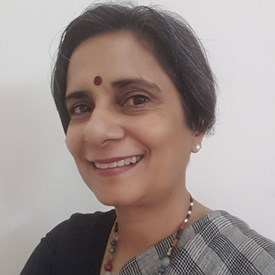
Adenovirus spike: Virologists tell us how parents can keep children safe
Compromised immunity since COVID may be playing a role in symptoms lasting for a longer period; good hygiene can prevent infections

There has been a recent spike in adenovirus cases in the country with West Bengal being the worst affected. Five children are reported to have died over the past two days due to respiratory problems. The toll in Bengal is reported to be in double digits, though doctors caution that it is not clear if the deaths are due to adenovirus.
Adenovirus, which causes a mild cold, or flu-like illness, can affect people of all ages but is especially affecting children. These viruses are named from the tissue from which they were first isolated — the adenoids, which is the tonsil and lymphatic tissue where the nose and throat meet.
No link with coronavirus
With the virus coming soon after the COVID pandemic, many suspect a link between the two. But Dr Gagandeep Kang, eminent virologist and professor in the department of gastrointestinal sciences at Christian Medical College, Vellore, allays all such fears.
Also read | Adenovirus: Bengal approaching crisis as 5 more children die of infections
“SARS-CoV2, other coronaviruses and adenoviruses can both cause respiratory and gut infections. Otherwise, the viruses are not linked, they belong to different families,” she told The Federal.

“Adenovirus infections are very common in children and severe disease is rare. Children can develop a range of symptoms from coughs and colds to pneumonia, conjunctivitis and diarrhoea,” Dr Kang said, adding, “Deaths directly due to adenovirus infection in healthy children are very rare, but can happen in children who are immuno-compromised.”
Dr Sanjay K Rai, Professor of Community Medicine at AIIMS, Delhi, also said that there is nothing to worry about. “Adenovirus cases are reported every year around this time. Although Delhi has reported a few adenovirus cases, in no way it is an imminent public health issue.”
On the increase in the number of cases this year, Dr Rai feels “compromised immunity since the pandemic may be playing a role in symptoms lasting for a longer period.”
Change of weather
Dr Tarun Sahni, Internal Medicine Specialist at Delhi’s Indraprastha Apollo Hospital, also is of the opinion that in Delhi-NCR the situation is not too different from previous years. “Most viruses tend to flourish with the change in weather,” he told The Federal.
“Delhi has seen cases of H3N2- type of influenza A. In these cases, fever would subside in 4-5 days, but cough and other symptoms would persist for a very long period,” Dr Sahni said. “The H3N2 virus was the cause behind the unexpected spike in influenza flu cases of viral infection and respiratory problems across Delhi-NCR,” he added.
He also pointed out: “It is more prevalent in close-contact environments, including day-care facilities, schools, and hospitals.”
Dr Shipra Anand, Pulmonologist and Assistant Professor at Delhi’s Lok Nayak Hospital, also said there is nothing to panic about. “As the infections multiply in our respiratory tract and the gastrointestinal system, the symptoms tend to last longer than most flu viruses.”
“We can have a clear picture when gene sequencing or serotyping are conducted by NCDC or ICMR. Till then, people need to be watchful and follow basic hygiene and distancing norms,” she added.
Hygiene for prevention
Dr Rai said basic hygiene along with mindful distancing will go a long way in keeping these viruses at bay. Dr Kang also advocates standard hygiene practices, adding that one can use “masks if you are worried about getting infected.”
On the spike in adenovirus cases in West Bengal also resulting in deaths, Dr Kang said: “From the few cases for which details are available, it is not clear that the deaths were caused by adenovirus. In at least a couple of the cases, this appears to be secondary pneumonia following a primary viral infection.”
Also read: Mobile health intervention can help prevent secondary stroke: Study
Pointing out that “adenoviruses are not part of the usual testing strategy for most laboratories,” she said: “Kolkata has the National Institute for Cholera and Enteric Diseases, so they have the ability to look for them.”
“But just finding the viruses does not mean that the deaths are due to the virus. We need to know a lot more before we are able to draw a conclusion,” she stressed.
“There are no comprehensive studies or data sets to ascertain the overall disease burden,” Dr Kang said. “The medical fraternity is yet to begin detailed monitoring of such cases, as it reoccurs every year. This year, the cases are slightly more different as symptoms are persisting for a longer period,” she added.


